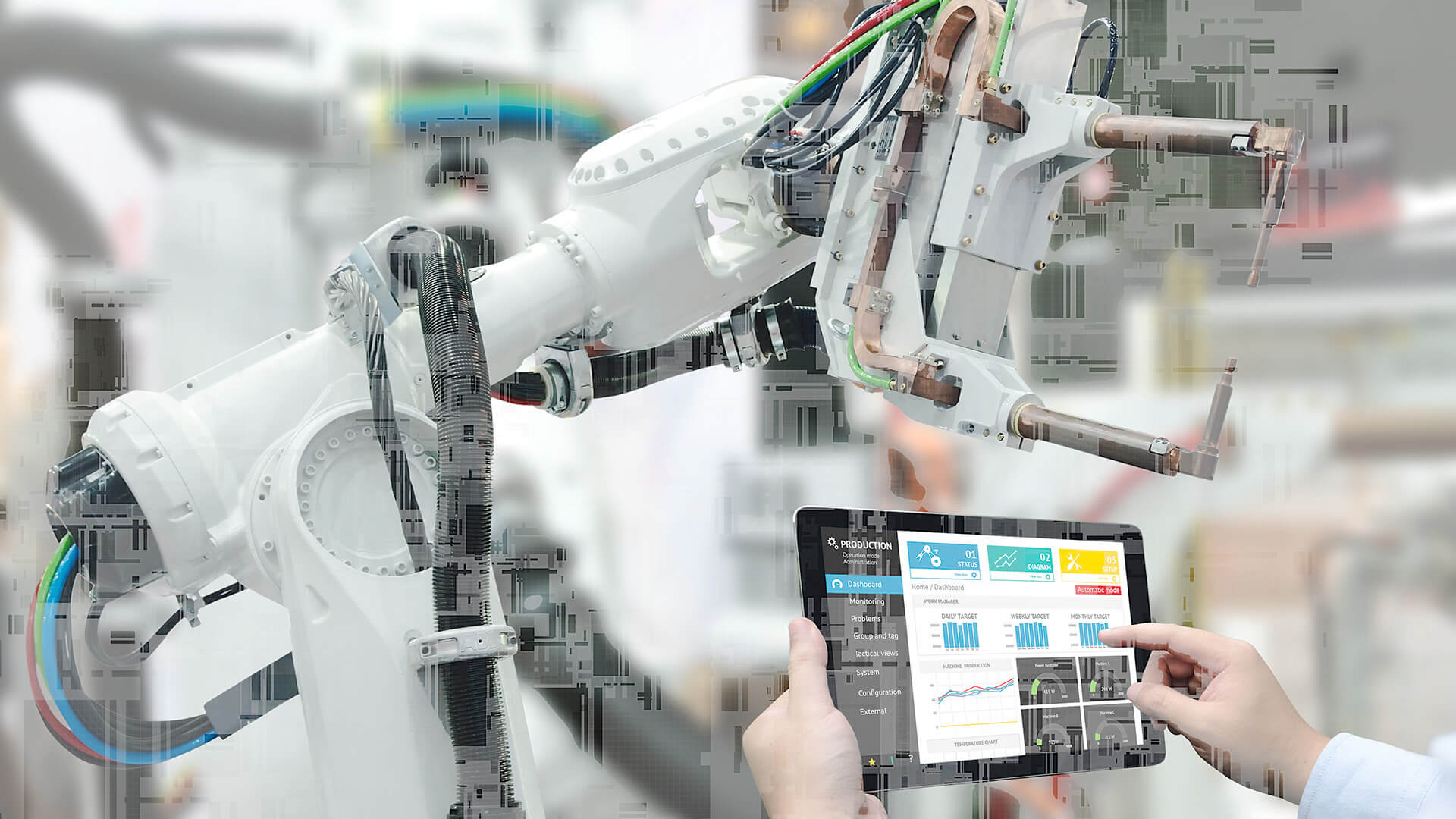
In today’s rapidly evolving business world, Artificial Intelligence (AI) has emerged not just as a technological advancement, but as a pivotal force driving innovation and efficiency across various industries.
The McKinsey Global Survey on AI in 2023 underscores this trend, showing an explosive growth in generative AI (gen AI) tools. Remarkably, within a year of their introduction, one-third of surveyed organizations reported regular use of gen AI in at least one business function.
This swift integration of AI into business operations signals a shift from its previous perception as a niche tech tool to a core component of strategic planning and execution. AI’s transformative power in the business landscape is multifaceted. It’s reshaping how companies approach problem-solving, decision-making, and innovation.
AI technologies like machine learning, natural language processing, and robotics are revolutionizing sectors from healthcare to finance, offering unprecedented opportunities for growth and efficiency. In retail, AI is personalizing customer experiences, while in manufacturing, it’s optimizing supply chains and production processes.
The trend towards AI adoption is not just limited to large corporations; small and medium-sized enterprises are also recognizing the potential of AI to enhance their competitiveness. The use of AI in business analytics, customer service, and digital marketing is becoming increasingly common, allowing businesses of all sizes to make data-driven decisions and improve their operations.
However, the integration of AI into business is not without its challenges. Concerns about data privacy, ethical implications, and the displacement of jobs are prompting businesses to approach AI adoption with a balanced perspective. Companies are increasingly focusing on responsible AI practices, ensuring that AI is used in a way that is ethical, transparent, and beneficial to society.
The transformative power of AI in today’s business landscape is undeniable. As organizations continue to embrace AI, they are finding new ways to innovate, compete, and thrive in a rapidly changing world. The future of business is inextricably linked with the advancements in AI, making it a strategic asset for organizations looking to maintain a competitive edge.
AI High Performers Leading the Charge
Organizations already skilled in AI capabilities, termed as ‘AI high performers,’ are setting benchmarks in the adoption of generative AI tools. These businesses attribute at least 20% of their EBIT to AI adoption, distinguishing themselves from their peers in their forward-thinking approach to technology.
They are not only adopting AI solutions but are also pioneering the exploration of gen AI’s potential in transforming business operations and strategies.
These AI high performers are found across various sectors, from tech giants to innovative startups. They leverage AI for a range of applications, including advanced data analytics, automated customer service, personalized marketing, and efficient supply chain management. Their success stories serve as powerful examples of how AI can drive significant improvements in productivity, customer satisfaction, and overall business performance.
Moreover, these organizations are not just using AI as a tool but are embedding it into their core business processes. By doing so, they are transforming their business models and creating new value propositions. For instance, in the financial sector, AI high performers are using AI to develop more accurate risk assessment models and personalized investment advice. In healthcare, they are utilizing AI for predictive diagnostics and personalized treatment plans.
The leadership in these organizations plays a crucial role in fostering a culture that embraces AI. They invest in upskilling their workforce, ensuring that employees are equipped with the necessary skills to work alongside AI technologies. Additionally, these leaders prioritize ethical considerations and ensure that their AI implementations are transparent and fair.
The success of AI high performers sets a precedent for other organizations. It demonstrates the tangible benefits of AI adoption and provides valuable insights into best practices for integrating AI into business operations. As more organizations follow in the footsteps of these AI high performers, the landscape of business is set to undergo further transformation, driven by the innovative use of AI technologies.

Gen AI’s Broad Appeal and Sector-Specific Impact
AI’s influence is widespread, spanning across regions, industries, and seniority levels. Its broad appeal is evident in the diverse applications and deep integrations seen in various sectors. In technology and financial services, the impact of gen AI is particularly pronounced, poised to bring about significant disruption and innovation.
In the technology sector, gen AI is driving advancements in software development, cybersecurity, and data management. Tech companies are using AI to develop more sophisticated algorithms, enhance user experiences, and create more efficient systems. The potential of AI in cybersecurity is particularly noteworthy, with AI systems being able to detect and respond to threats more rapidly and accurately than ever before.
Financial services are seeing a transformation through AI in areas like fraud detection, algorithmic trading, and personalized banking services. AI algorithms can analyze large volumes of transactional data to identify patterns and anomalies, helping to prevent fraud. In trading, AI algorithms are used to make real-time decisions, processing vast amounts of market data to execute trades at opportune moments.
However, the impact of gen AI is not limited to these sectors. In healthcare, AI is revolutionizing the way diseases are diagnosed and treated, with machine learning algorithms being used to analyze medical images and patient data. In education, AI is enabling personalized learning experiences and helping educators to better understand and support their students’ needs.
Despite these promising developments, the sector-specific impact of AI also presents challenges. For instance, in manufacturing, the adoption of AI might be slower due to the heavy reliance on physical processes and equipment. However, even in these sectors, AI is starting to make inroads, with applications in predictive maintenance, quality control, and supply chain optimization.
The broad appeal and sector-specific impact of AI underscore its transformative potential. As AI continues to evolve and become more sophisticated, its role in driving business innovation and efficiency is likely to grow even further. Organizations across all sectors will need to understand and embrace the potential of AI to remain competitive in an increasingly AI-driven world.
Navigating the Risks of AI Integration
Despite the growing enthusiasm for artificial intelligence in the business sector, a prudent approach is evident, as only a minority of 21% of companies have established specific policies for the use of general AI technology.
This cautionary stance stems from several risks associated with AI deployment. These concerns encompass potential inaccuracies in AI outputs, significant cybersecurity threats, and the complex landscape of regulatory compliance.
It’s crucial for businesses to navigate these challenges carefully to fully leverage AI’s potential without compromising operational integrity or facing legal repercussions.

Real-World Impact of AI: Case Studies Across Industries
In the realm of healthcare, artificial intelligence is making a formidable impact. It significantly improves the accuracy of medical diagnoses, thereby enhancing patient outcomes and the efficiency of treatment protocols.
Moreover, AI streamlines administrative processes in healthcare settings, easing the burden on medical staff and reducing overhead costs. Another groundbreaking application is in drug discovery, where AI’s advanced algorithms are revolutionizing the way new medications are developed, speeding up the process and improving the efficacy of the drugs.
Revolutionizing Finance with AI
The financial industry is witnessing a profound transformation thanks to AI. One of the key areas where AI is making a marked difference is in fraud detection. By analyzing patterns and identifying anomalies, AI systems can pinpoint fraudulent activities with remarkable precision, safeguarding financial assets and consumer trust.
Additionally, AI is reshaping the landscape of financial markets through algorithmic trading. This involves using AI-driven algorithms to make trading decisions at speeds and volumes unattainable by human traders, thus opening up new opportunities and efficiencies in financial operations.
AI’s Influence in Retail
In the retail sector, AI is a game-changer in several ways. It offers personalized shopping experiences to customers by analyzing their browsing patterns and purchase history, thus enhancing customer satisfaction and loyalty.
Furthermore, AI plays a critical role in optimizing inventory management, ensuring that stocks are maintained efficiently to meet demand without unnecessary surplus. Another significant application is in enhancing customer support through AI-powered chatbots and recommendation systems, leading to a more engaging and responsive shopping experience.
Manufacturing Efficiency Through AI
The manufacturing industry is leveraging AI to achieve new levels of efficiency and productivity. AI’s role in predictive maintenance is pivotal, allowing for timely identification of potential equipment failures before they occur, thus minimizing downtime and maintenance costs.
Additionally, AI systems are employed in machine monitoring, ensuring that manufacturing processes run smoothly and efficiently. Quality control is another area where AI contributes significantly, with advanced algorithms enabling more precise and consistent quality checks, leading to better product quality and reduced waste.

The Future of AI in Business and a Call-to-Action
As we look to the horizon, the future of AI in business is not just promising but transformative. This future is underscored by groundbreaking advances in various sectors, particularly in healthcare, where AI’s impact is profound.
The integration of AI with quantum computing is poised to unlock new frontiers, enabling computations and data analysis at unprecedented speeds and scales. This synergy between artificial and human intelligence is no longer a distant concept but a necessary reality, fostering collaborative futures where human creativity is augmented by AI’s analytical power.
Moreover, as AI continues its march forward, the imperative for ethical considerations in its deployment becomes more pronounced. The evolution of AI necessitates responsible practices, underpinned by robust legal frameworks and increasingly sophisticated technology.
This responsibility is particularly crucial in the realm of generative AI, which is rapidly transitioning from theoretical exploration to practical business applications. As this transition unfolds, businesses must navigate the complexities of ensuring that generative AI is used in ways that are ethical, respectful of privacy, and aligned with societal values.
Enhancing Business Efficiency and Automation
Looking specifically at the year 2024, the expectation for businesses is not just to adopt AI but to demonstrate its tangible value in enhancing efficiency and profitability. AI-driven and supported automation is becoming a cornerstone in this endeavor.
Across industries, from manufacturing to services, the integration of AI in business processes is enabling companies to streamline operations, reduce costs, and optimize resource allocation. This shift towards automation, powered by AI, is not just about replacing manual tasks but about enhancing the capabilities of human workers, allowing them to focus on more strategic, creative, and interpersonal aspects of their roles.
As we stand on the brink of a new era in technology and innovation, it is imperative for organizations to not only recognize but wholeheartedly embrace the transformative power of AI. The integration of artificial intelligence into business strategies is no longer a futuristic concept but a present-day necessity. This journey involves more than just adoption; it demands active engagement with the evolving AI landscape.
The emergence of generative AI, with its unparalleled capabilities to create, innovate, and revolutionize, presents a frontier of untapped potential. Businesses that leverage these generative AI tools will find themselves at the forefront of innovation, staying ahead of the curve in a rapidly changing market.
This approach isn’t just about staying competitive; it’s about redefining what’s possible, pushing boundaries, and creating new value for customers and stakeholders alike.
Therefore, the call-to-action for today’s businesses is clear: delve into the realm of AI, explore its myriad possibilities, and harness its power to forge a path toward a future replete with innovation, efficiency, and unparalleled growth.
In doing so, organizations will not only secure their own success but also contribute to the broader narrative of technological progress and its positive impact on society. Revolutionize your operations with AI. Get in touch.







